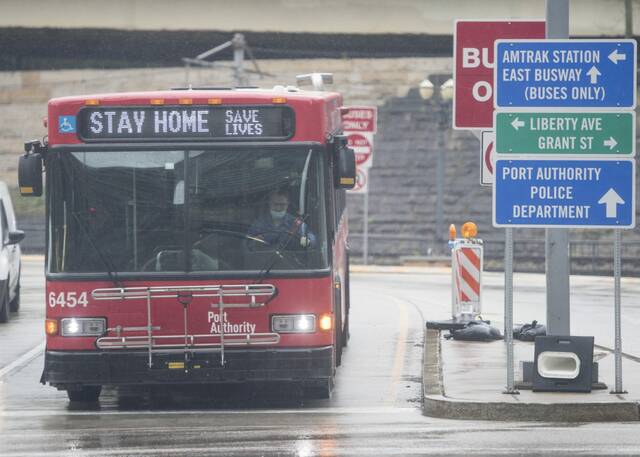A federal appeals court on Wednesday said that a Port Authority policy prohibiting its employees from wearing Black Lives Matters masks was overbroad and violated their First Amendment rights.
The 3rd U.S. Circuit Court of Appeals upheld an earlier decision by U.S. District Judge J. Nicholas Ranjan.
“The government may limit the speech of its employees more than it may limit the speech of the public, but those limits must still comport with the protections of the First Amendment,” the three-judge panel wrote. “Port Authority bears the burden of showing that its policy is constitutional. It has not made that showing.”
However, the 23-page opinion makes clear that its ruling is intended to be narrow.
“In upholding the District Court’s ruling, we do not suggest that Port Authority must allow the display of all messages,” the court wrote.
It specified that its decision was based on the specifics of the policy being challenged in the current case, and that words that are obscene, defamatory or inciteful could still be prohibited by the transit agency.
“Another policy, another message, a uniform requirement, or another set of interests may be different,” wrote Judge David J. Porter. “In each case the specific facts and circumstances will be dispositive.”
In 2020, early on in the pandemic, Port Authority, now known as Pittsburgh Regional Transit, issued a mask mandate for its drivers, which has since been removed.
In the late spring of 2020, following widespread political protests over the death of George Floyd at the hands of police in Minneapolis, some employees began wearing Black Lives Matter masks.
An employee complained to the agency in July of that year, prompting Port Authority to issue a policy banning “buttons, stickers, jewelry and clothing (including masks or other face coverings) of a political or social protest nature.”
Two months later, the policy was made even more restrictive, allowing only limited types of masks — including those with the Port Authority logo, a union logo, solid blue or black, or a surgical N-95 mask.
The Amalgamated Transit Union Local 85, which represents Port Authority employees, and several individuals filed a federal lawsuit arguing that the uniform policy violated their rights to free speech and equal protection.
Ranjan agreed with the plaintiffs in January, finding that Port Authority’s ban on political speech was “arbitrary and over broad.”
He prohibited the entity from enforcing the mask ban.
Port Authority appealed, and a three-judge panel of the court heard argument in December.
Under the law, the circuit court said, Port Authority was required to show that its policy was constitutional and that if the case proceeded, the agency was likely to succeed. The Third Circuit said it did not meet that burden.
Although speech by government employees receives less protection than speech by the public, the appellate court said there is still a balancing test to weigh an employee’s interest in speaking against a government’s interest in quelling that speech.
Precedent shows that the inquiry “‘involves a sliding scale’ where ‘the amount of disruption a public employer has to tolerate is directly proportional to the importance of the disputed speech to the public.’”
Speech involving government impropriety has the highest level of First Amendment protection, the Third Circuit said.
Because there was very little — if any disruption to Port Authority activities — the court said, the balance weighs in favor of the employees’ speech.
“In some respects, Port Authority’s uniform policy is overbroad. It sweeps in the wide array of social-issue and political speech in which Port Authority employees have long engaged without causing disruption,” the court wrote.
In its opinion, the appellate court noted that Port Authority had long had a policy banning messages of a political or social protest nature, but that the policies were laxly enforced.
“Port Authority defends the breadth of its policy because it ‘make[s] it easier for employees to comply,’” the court wrote. “But the Supreme Court has disapproved administrative convenience as a justification for broad bans on government-employee speech.”
Messages left with Port Authority and their attorney Wednesday afternoon were not immediately returned.











